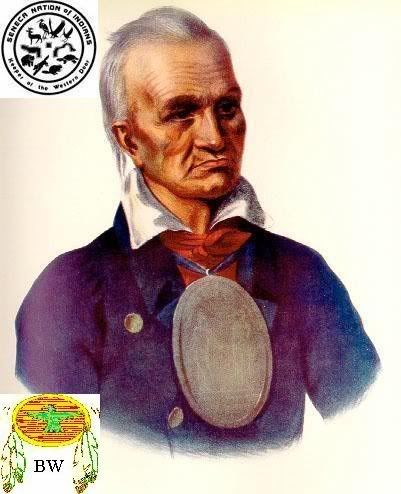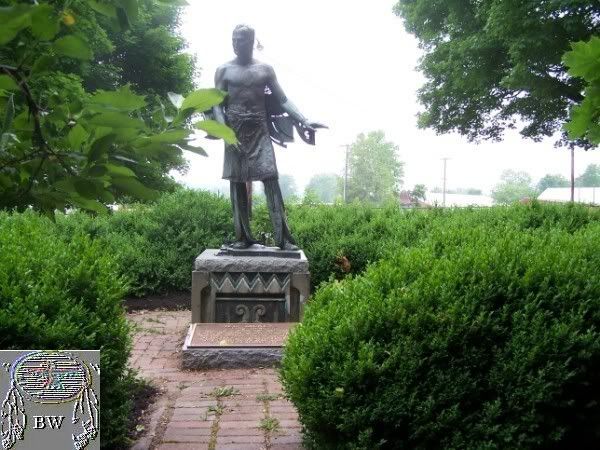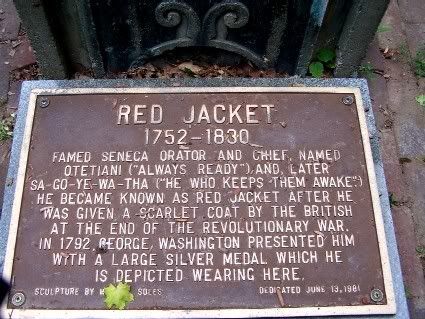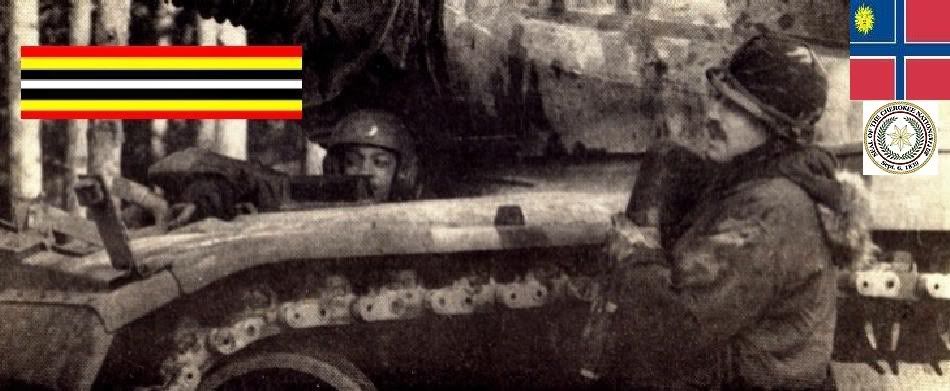|

Chief Red Jacket
(1750–1830)
Warriors Citation
Red Jacket (also known as Segoyewatha after 1780) was a Native American Seneca chief and orator. He was born near present
day Geneva, New York and lived much of his life in Seneca territory in the Genesee River Valley. Although they often met together
at the Long House, he and Mohawk chief Joseph Brant were bitter enemies and rivals. He was a signatory along with Cornplanter
and fifty other Iroquois, of the sale of most of the Seneca land in western New York for $100,000 to Robert Morris. He originally
tried to prevent the sale, but was not able to convince the others, and gave up his opposition. The sale was at Big Tree (now
Geneseo, New York in present Livingston County) in 1797 and was well greased by a great deal of liquor and bribes of trinkets
to the Iroquois women. Morris who had previously purchased the land from Massachusetts, subject to the Native American title,
then sold it to the Holland Land Company, retaining only the Morris Reserve, an estate near present day Rochester.


Red Jacket took this name, one of several, for a highly favored embroidered coat given to him by the British for his wartime
services. The Senecas took the British side during the American Revolution, a costly mistake, since their ally lost. In the
War of 1812, Red Jacket supported the American side. Red Jacket was also known for his speechmaking skill. His alternative
name, Segoyewatha, roughly translates he keeps them awake. He is best known for his response to a New England missionary (a
Mr. Cram) had requested in 1805 to do mission work among the Senecas. His speech is listed in Bartleby's List of the World's
Famous Orations whereby Red Jacket spoke as an apologist for the Native American religion. Red Jacket had a problem with alcohol
and deeply regretted the first drink. Once a lady asked him if he had any children; Red Jacket who had lost most of his children
to illness replied sorrowfully: Red Jacket was once a great warrior, and in favor with the Great Spirit. He was a lofty pine
among the smaller trees of the forest. But, after years of glory, he degraded himself by drinking the firewater of the white
man. The Great Spirit has looked upon him in anger, and his lightning has stripped the pine of its branches. From: historical
accounts & records


LINK TO BRAVEHORSE WARRIORS VOLUME TWO
|

